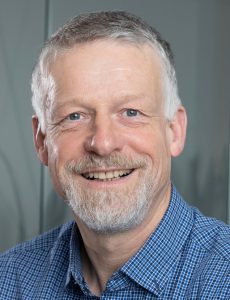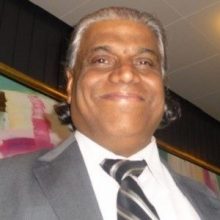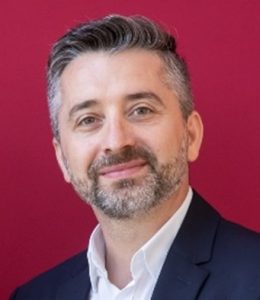Complementary short courses and workshops at Nordpac 2024
We proudly offer complemetary short courses and workshops at NordPac 2024. These will be free of charge for all participants that have registered for the full conference.
Short course: Semiconductor packaging using structured glass panels as platform
 |
Dr. Martin Letz
Senior principal scientist, SCHOTT AG
Martin Letz works with SCHOTT, a special glass company, as a senior principal scientist in the central R&D. He joined SCHOTT in 2001 and was involved in several projects regarding materials for semiconductor structuring. Since several years he focusses on glasses and glass ceramics for electronic applications and their properties. One focus is on materials for antenna and filter structures for wireless data transfer. A second focus is on miniaturization of high frequency electronics. Prior to that he received his PhD in solid state physics from the University of Stuttgart in Germany and had several positions in research institutions and Universities (Tartu University (Estonia), Max-Plack Institut (Stuttgart, Germany), Queens University |
| Course description:
Using glass as the core substrate for panel and/or wafer level packaging to achieve heterogeneous integration in increasingly complex packages has a large number of advantages: The stiffness of glass (i) allows manufacturing of highly accurate buildup layers with manufacturing precision of 1µm and below. The low and in a certain range adjustable thermal coefficients (ii) of glasses are helpful to manage mechanic stresses. Special glasses can be made with very good dielectric properties (iii) and can also be applied in antenna in package applications. But most of all, economic glass structuring techniques (iv) which can provide millions of vias and thousands of cut outs in a glass panel, with I/O distances well below 100µm, are important and are being developed. The biggest hurdle for a large scale commercialization of glass panel packaging is industrial readiness to bring glass panel packaging in applications like IC packaging, or in combination with cut outs for fan out embedding of active and passive components. Metallization processes with good adhesion, excellent electrical properties and high geometric accuracy for glasses are also an important step. In the current tutorial we review the status of, and discuss our contribution towards achieving industrial readiness for glass panel and wafer level packaging. In addition we review the status of glass based packaging and present the SCHOTT product platform FLEXINITY ® for efficient large scale manufacturing of cut outs and vias. |
|
Short course: Corrosion of electronics, challenges, and prevention strategies
 |
Professor Rajan Ambat
Technical University of Denmark (DTU)
Dr. Rajan Ambat is currently Professor of Corrosion and Surface Engineering at Section of Materials and Surface Engineering, DTU Construct, Technical University of Denmark. He is also the Manager for the CELCORR/CreCon Industrial Consortium on climatic reliability of electronics and Center for Climate Robust Electronics (CRED) at DTU and Research Manager for the Corrosion node of DTU Offshore Research Centre. He has more than 16 years of expertise in the area of humidity and electronics and developing mitigation strategies. This includes electrochemical failure mechanisms at material, component, PCBA, and systems level, PCBA cleanliness issues and humidity interaction, modelling humidity interaction with electronics and pro-actively defining solutions. |
| Course description:
Use of power electronic equipment and devices as part of green transition technologies are challenged today due to corrosion failure modes caused by unwanted exposure to different environmental conditions. These conditions include climatic conditions such as humidity and temperature variations and other factors such as air pollutants for example sulphur containing gases. Conditions can be as severe as offshore. There are inherent factors of electronics contributing to it, while corrosion affects functional performance of electronics. Use of electronics as part of green transition means broader service environmental boundaries, while they are expected to perform efficiently. This short course will focus on learning:
|
|
Workshop: Photonics-electronics integration and co-packaging. From technology to applications
 |
Professor Mircea Guina
Tampere University
Prof. Mircea Guina leads the Optoelectronics Research Centre group at Tampere University. He obtained the PhD degree in Physics from the Tampere University of Technology in 2002. Since then, he has been a constant contributor to the advances of laser science and semiconductor technology. Prof. Guina’s research interest currently spans form the development of novel optoelectronic heterostructures using molecular beam epitaxy, advanced semiconductor lasers, hybrid photonic integrated circuits, quantum technology, and laser applications. He has published more than 260 journal papers, eight book chapters, and has an outstanding record in leading large-scale research projects extending from basic science to technology transfer. He has supervised more than 20 PhD theses. He is the recipient of an ERC Advanced Grant, a Fellow of the Optica, a Fellow of SPIE, and a Board of Stakeholders member in Photonics21. Prof. Guina is a renewed promotor of academic-driven entrepreneurship and strategic collaboration with industry. His work concerning innovation and entrepreneurship has been recognized with the Innovation Professor of the Year 2023 award offered by Technology Industries of Finland. |
Topics:
|
|

